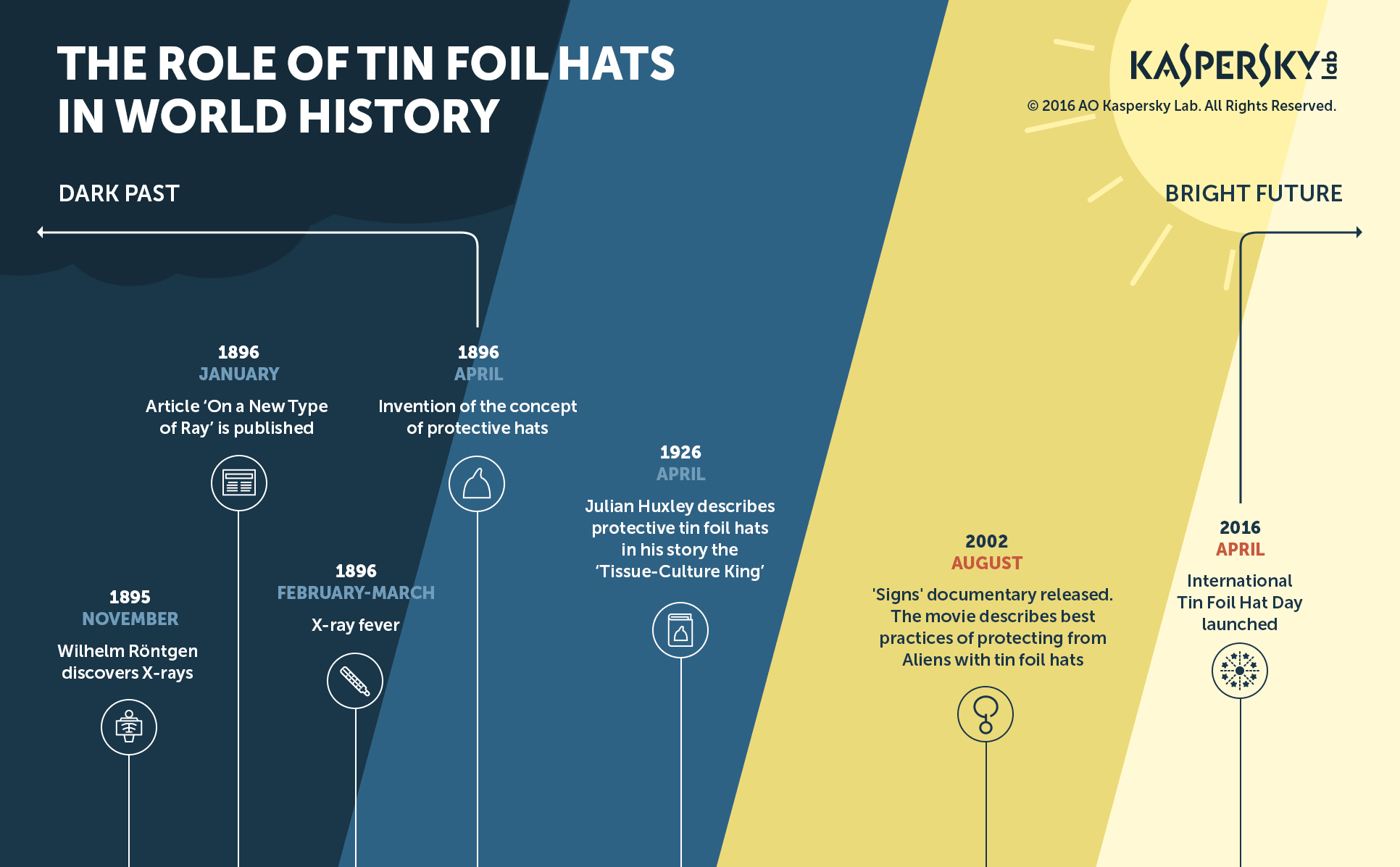How long has it been since you were last alone? Probably never! Even within the walls of your skull you’re never really alone. For enemies are everywhere — since time immemorial trying to get a glimpse of your thoughts and — worse! — to influence them. What’s more, there are a lot of enemies out there: evil spirits, secret government departments, intelligent dried fruit, beginner-mega-corporations, aliens… to name just a few.
Faced with these constant threats to our thoughts, we decided to attract attention to the issue — by coming up with International Tin Foil Hat Day! And it’s no accident that this year was chosen for introducing this new special day, since this year is the 120th since the invention of mind-reading-preventing tin foil hats.
Taking part in International Tin Foil Hat Day is easy: just cover the top and sides of your head with a homemade tin foil hat, and all together — as a single force united by a common higher purpose – we’ll be able to shout together: ‘Get out of my head!’ If just for this one day of the year we’ll all be, at least to a certain extent, safeguarded by foil hat protection, en masse.
So, break out the kitchen foil, take a selfie, and upload it to social media with the #tinfoilhatday2016 hashtag.
Why Now?
Covering one’s head for protection is nothing new. Even prehistoric man would cover his skull with birch bark, wood, leather, fur, and later on — bronze, among other such disparate materials. But that was to protect the head from the sun and rain and knocks and so on. He didn’t realize he needed to protect it also from mind-reading enemies (and the miserly amounts of aluminum contained in bark provided protection only against the ineptest of telepaths anyway).
The situation changed completely when a certain Wilhelm Conrad Röntgen proved the existence X-rays. The discovery of such invisible rays led many — from scholars and pseudo-scholars to quacks alike – to give their interpretations of what these X-rays meant for the human race.
Among them were articles penned on how soon the rays would completely do away with all personal privacy, for example by being able to see through clothing — and even through the skull to our thoughts. No doubt having read about these theories, and unknown entrepreneur inventor from London got down to swift work to ‘invent’ special hats that protected against mindreading.
We don’t know what those hats were made of (unfortunately all stocks sold out long before any Kaspersky Lab experts were born), but that doesn’t matter. He was the first to come up with the idea of covering one’s scalp to protect the mind against penetration, and that was the crucial first step of the resistance!
Fast forward to today, and we get a double-anniversary: in addition to this year being the 120th since the invention of mind-reading-preventing hats, it’s also 90 years since Julian Huxley, in April 1926, published his short story in the Yale Review titled ‘The Tissue-Culture King’, in which the main character blocked the effect of telepathy. How? With a tin foil hat.
Kaspersky Lab — preferring a systemic, multi-layer approach to securing information — is planning to integrate this mind protection method into some of its security products. Besides, our very own cyborg, Evgeny Chereshnev, has decided to add to the tech-perfection of his bionic body with tin foil protective coverings to his cranium (both inside and out!).
 tips
tips




